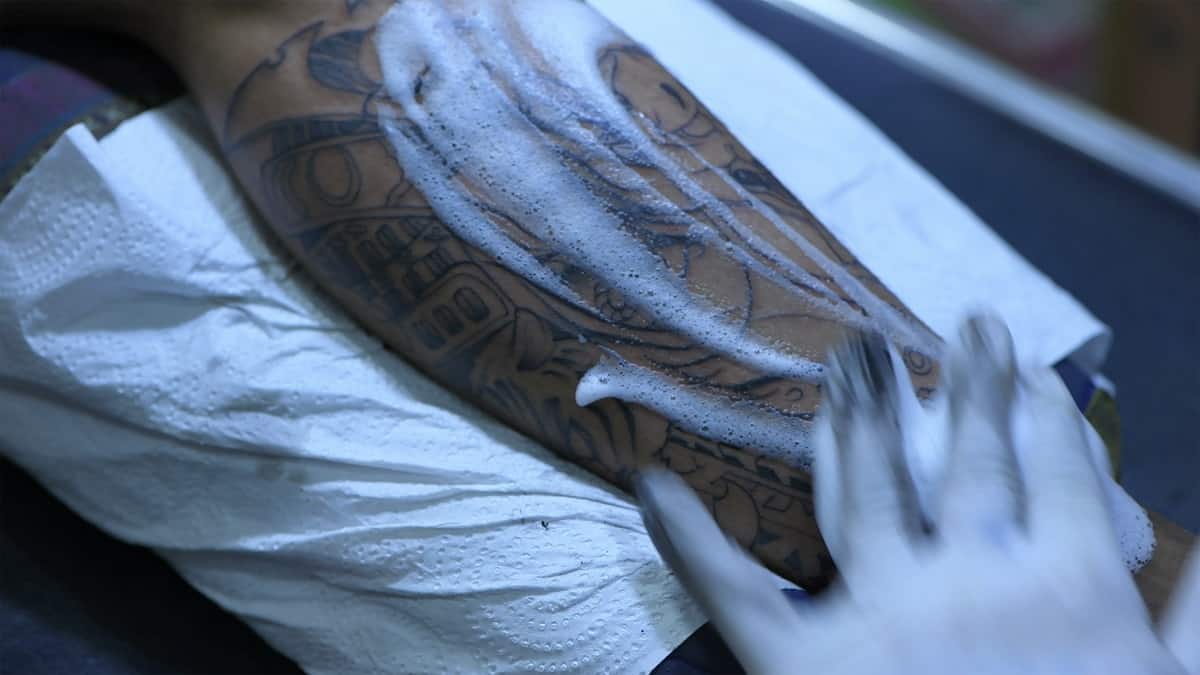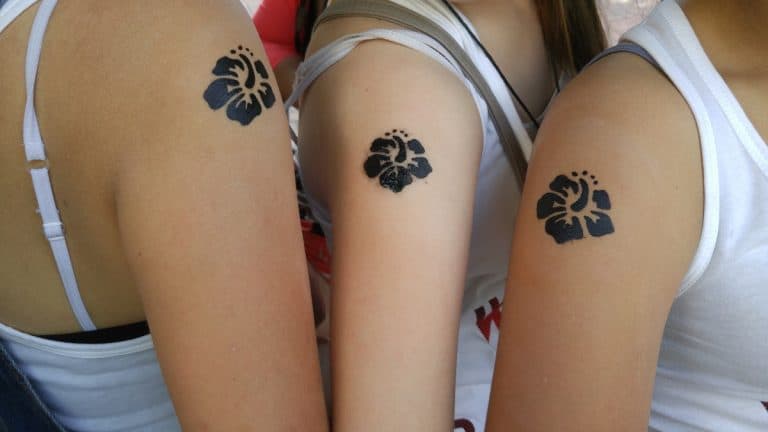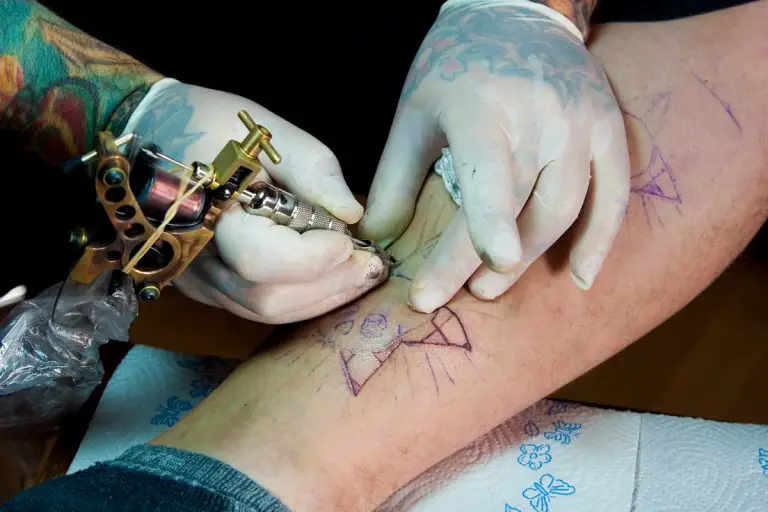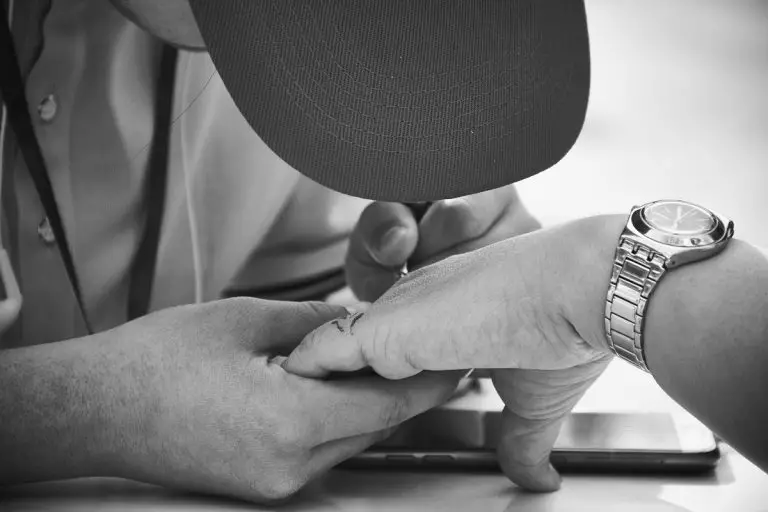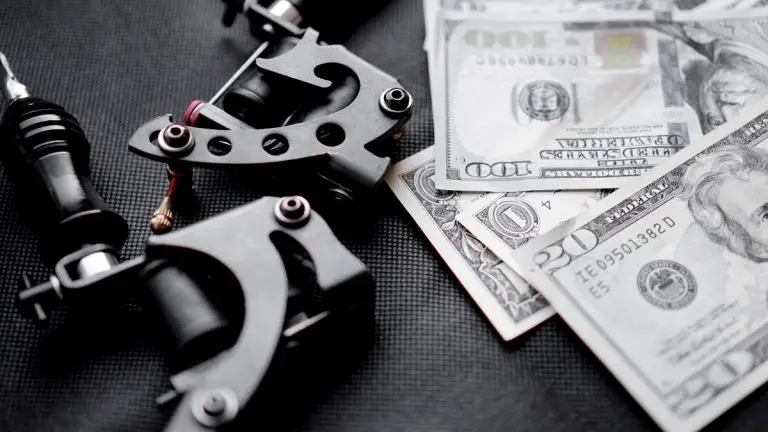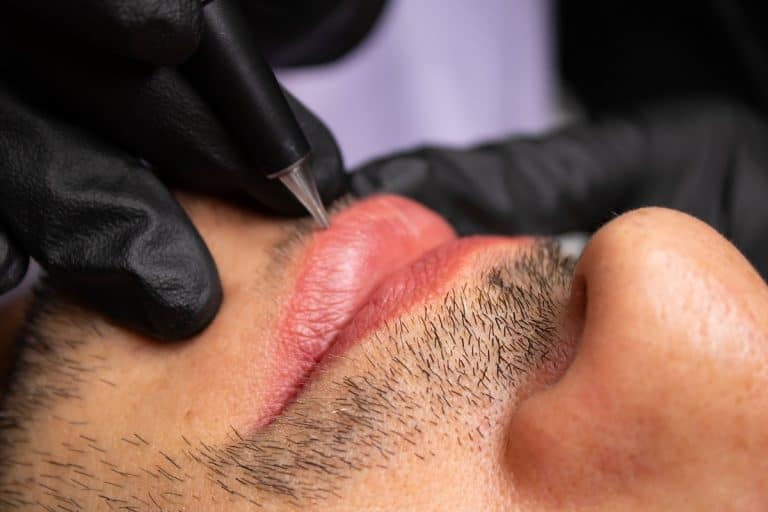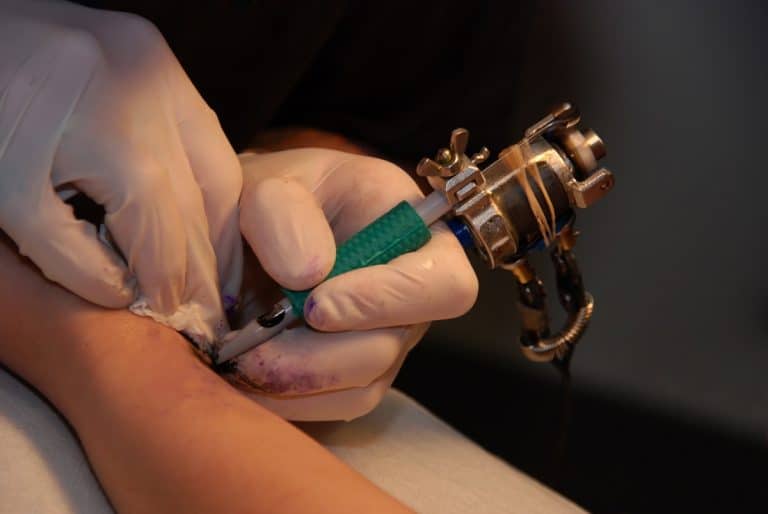How Long Will Your Tattoo Be Sore For?
You just got a new tattoo, but instead of enjoying it, you’re in pain and the tattoo is sore and swollen. It all seems like a mess, especially when you remove the bandage, and the tattoo is just bloody, tender, and red. Well, that is nothing to be concerned about. Your new tattoo behaves like a fresh wound, which needs time to heal.
But, you cannot help but wonder; when will my tattoo stop being sore? In the following paragraph we’ll take a look at tattoos, why are they sore and when will they stop being sore and start to finally heal. So, without further ado, let’s get started!
Tattoo Soreness: 7 Things You Should Know
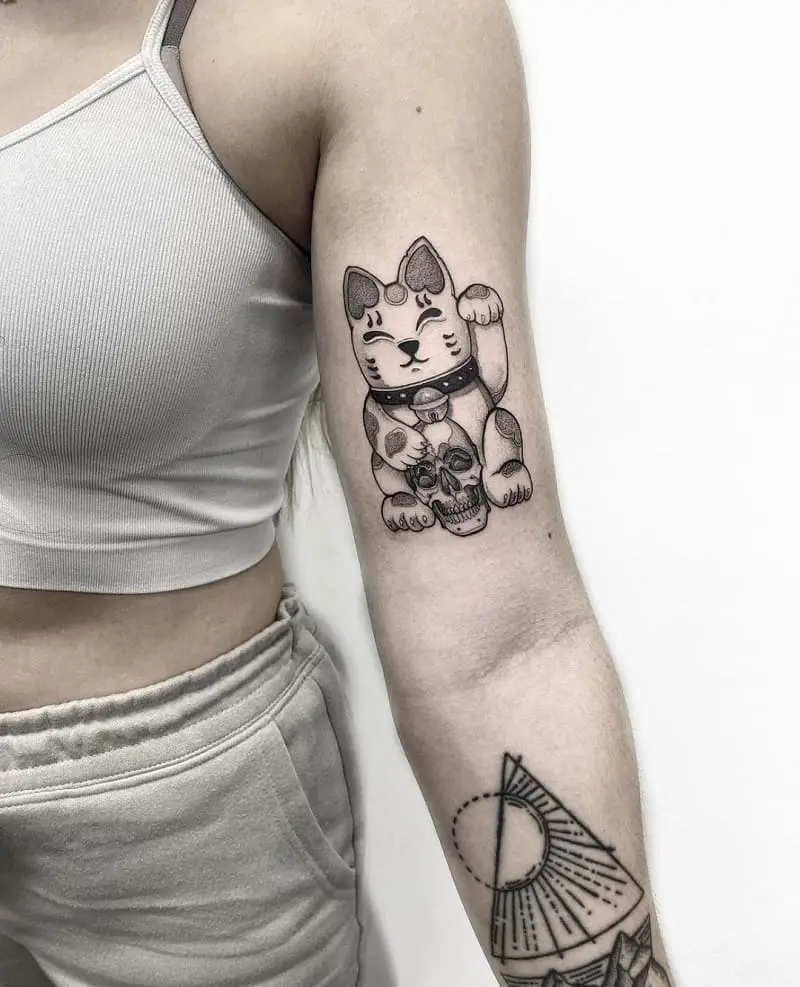
1. Why Is My Tattoo Sore?
As we mentioned earlier, tattoo soreness, tenderness, and swelling is a completely normal reaction of your skin to the process of being tattooed. Your skin was continuously ‘stabbed’ and penetrated by a tattoo needle, which causes skin irritation, the irritation of nerve endings, and overall discomfort and pain as a result. Not to mention, the skin needs to be stretched when being tattooed, which also contributes to soreness and pain afterward.
So, now that we know what your skin goes through, it is not so weird that it is sore, isn’t it? The skin simply needs to have its moment to properly react to all the ‘torture’ it just endured, and it does so by being sore, swollen, red, tender, and painful.
2. How Long Will The Tattoo Be Sore?
As your new tattoo behaves like a fresh, open wound, it will take some time to start closing and healing. The first 3 days are crucial because the tattoo is getting rid of all the excess blood and plasma. The skin is starting to dry out and form a new layer of skin to protect the tattoo.
At this point, your aftercare routine needs to step in. You need to wash your tattoo, leave it uncovered to breathe and dry out, and after few days, you need to start moisturizing it.
However, your tattoo will still be sore and tender. Such a state can last between 3 to 7 days, which are generally crucial for tattoo healing. This will happen if you do follow the aftercare instructions properly, and no infection has developed in the meantime.
Some factors do prolong tattoo soreness. For example, if you have a low immune system, or you’ve recently been sick, it is more likely for your tattoo to be sore for a week since the body needs more time to handle the pain, irritation, and ‘damage’ to the skin.
3. How Do I Know The Tattoo Is Sore, Infected, or If I Have an Allergic Reaction?
If your tattoo is sore, red, and swollen for more than 7 days, you’re most likely experiencing a tattoo infection. If your tattoo is also still oozing (which it should have stopped after a day or two), then you’re also experiencing a serious infection. It is time to look for medical attention. So, contact your doctor or tattoo artist and seek immediate help.
Here’s a list of normal tattoo reactions in the very beginning, so you don’t confuse soreness and redness with an infection;
- Soreness
- Redness around the tattoo
- Swelling
- Scabbing
- Peeling
- Itching
- Bleeding and oozing after you remove the bandage
- Blood, plasma, and excess ink for one day only
These symptoms are completely normal if they occur between 3 to 7 days. If your tattoo is still bleeding, oozing, swelling, and hurting after a week, it is time to call the doctor, since you might be having a tattoo infection. Here are the main signs of a tattoo infection;
- Prolonged soreness, swelling, and redness
- Increasing pain
- Continuous bleeding, oozing, and drainage from the tattoo
- Rashing and forming of bumps around the tattoo
- Fever, chills, sweating, and shivering
Some people do tend to confuse a tattoo infection with an allergic reaction to the ink. For those who don’t know, some people are allergic to ink, so they develop an allergic reaction, either right away during tattooing, or after the tattoo is done. Here are the main signs you’re experiencing an allergic reaction;
- The continuation of soreness, swelling, and redness around the tattoo
- Dermatitis, usually cause by red ink (since it contains mercury sulfide which causes dermatitis)
- Excessive photosensitivity when exposed to the sun
- Bumps forming around the tattoo
- Rashing, scaling, and bumps
Allergic reactions to the ink are often treated with topical creams, but if not taken care of, they can develop into serious reactions. In such cases, the tattoo needs to be removed completely.
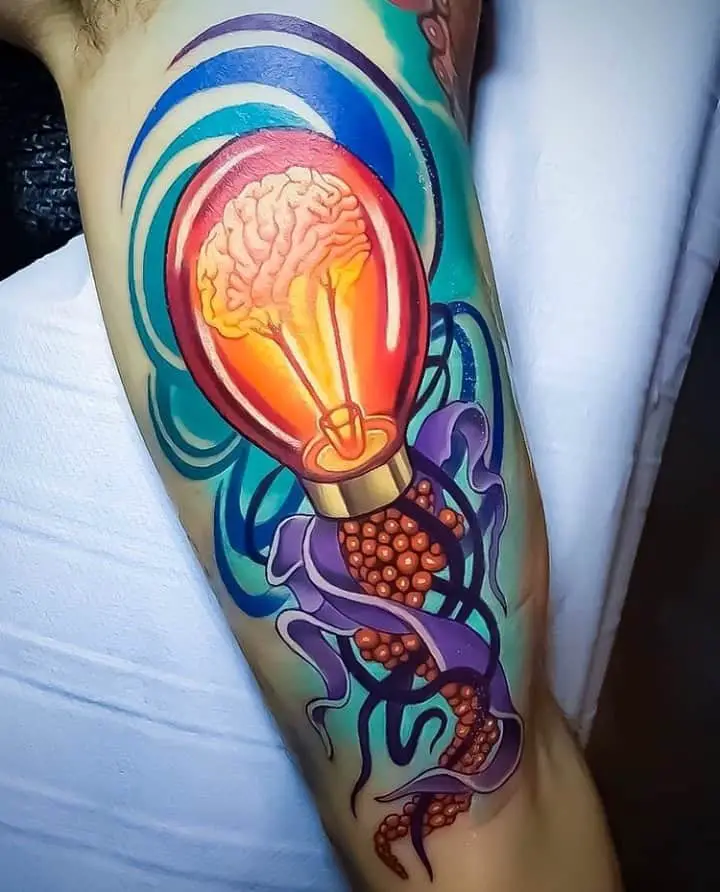
4. Are Certain Body Parts More Prone To Tattoo Soreness?
Sure thing; certain body parts do in fact handle the tattooing process not as good as the others. The body parts that are more prone to serious pain during tattooing will also be prone to serious soreness afterward. For example, bony areas or areas with thin skin and a lot of nerve endings will be painful and sore for a longer period. Because of the sensitivity of the region, the body will need more time to heal it.
So, if you want your tattoo to heal faster and not stay sore too long then go for areas with thicker skin and more fat. Avoid areas like ankles, inner arm, shoulder blades, feet, palms and hands, front of the neck, face, chest, elbow area, breast area, etc.
5. Can The Tattoo Artist Contribute to Tattoo Soreness?
Of course they can! The way your tattoo artist works can either prevent a lot of soreness or cause the tattoo to be sorer and swollen afterward. Generally, if the tattoo artist isn’t too experienced, or even familiar with his tattoo gun, they may overwork the tattoo and as a result leave you with soreness, swelling, and other issues. Here’s how your tattoo artist can make your tattoo problematic;
- Lack of experience
- Lack of familiarity with the tools
- Underworking or overworking the tattoo
- Being heavy-handed with the tattoo gun
- Penetrating the skin under weird angles
- Penetrating too deep into the skin (causing blowout)
- Not taking enough breaks during tattooing
6. How Can I Mitigate The Tattoo Soreness?
We believe that tattoos are all about proper aftercare. Without a proper aftercare routine, your tattoo will not only stay sore longer but will probably develop inflammation and infection. Therefore, you simply follow the aftercare recommendations of your tattoo artists. In case you were not provided with aftercare advice, here’s what you need to do;
- Leave the bandage on the tattoo for at least overnight
- After you remove the bandage, wash the tattoo with clean hands and unscented soap
- Leave the tattoo uncovered and let it breathe
- Only start moisturizing the tattoo after 2 or 3 days; it is never a good idea to put lotion on a fresh wound
- Wash the tattoo once in the morning and once in the evening; moisturize after cleaning only
- Do not put Vaseline on the tattoo; only a think coat when you shower, which you’ll wipe off and wash after you’re done showering
- Do not touch, pick, peel or scratch the tattoo
- Wear loose clothes and mitigate friction
- Avoid sun exposure and wear sunscreen
- Do not swim or spend time in the water
If you want to avoid prolonged soreness, swelling, redness, and infection, you need to follow these aftercare rules thoroughly and regularly. They won’t only ensure your tattoo handles the soreness quickly, but also that it stays bright, vibrant, and proper looking after it is done healing. Without the aftercare, your tattoo can remain dull, and in case of an infection, it can change the appearance completely.
7. Should I Take Pain Killers to Deal With Tattoo Soreness?
Many consider it a logical thing to do to take pain killers when the tattoo hurts or is sore and swollen. However, instead of mitigating the pain, pain killers can actually cause more harm than good.
Pain killers are known to contain things like ibuprofen. Because of this, they can cause blood thinning, which in the case of tattoos is a bad idea. Since your tattoo is fresh, and probably still bleeding and oozing a little, pain killers can thin the blood and cause the tattoo to start bleeding excessively. This alone can lead to inflammation and infection.
So, to avoid blood thickening issues, and have your tattoo heal properly, avoid taking pain killers. The pain and soreness of the tattoo will go away in a few days, so the mess and health concerns aren’t simply worth it. If you can’t seem to handle the pain, we recommend you talk to your doctor and look for pain killer alternatives, such as CBD oil for example.
Final Thoughts
Tattoo soreness is a completely normal occurrence after you get a new tattoo. It usually doesn’t last long, and if it does, it often indicates tattoo inflammation or infection. In that case, make sure to contact your doctor or tattoo artist, and seek immediate help.
To mitigate tattoo soreness, avoid taking pain killers and focus on following a proper aftercare routine. Do not touch, pick, peel or scratch your tattoo, otherwise it will stay sore longer or you could cause an infection.
- Safe, non-toxic plant-based temporary tattoos made with 100% high-definition printing for a realistic look without the pain
- Easy to apply and remove - just stick for 20 seconds then take off
- Set includes 5 sheets with 17 fun, delicate designs like hearts, cats, smiles, suns, moons, and more
- Waterproof and long-lasting - stays on up to 2 weeks of wear
- Fashionable for women, men, girls and boys
- Place on arm, wrist, neck, leg, finger, waist, foot and more
- Great for parties, birthdays, and showing your unique style

